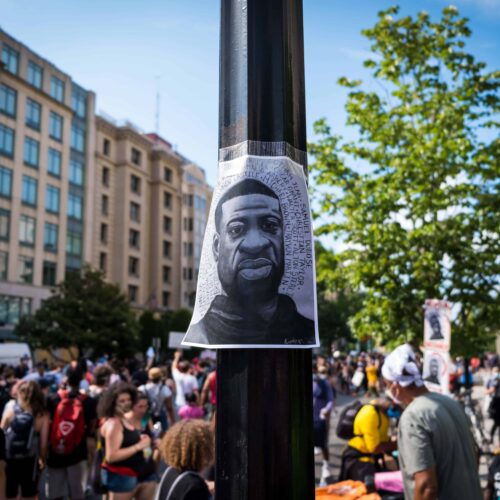Introduction
Welcome to The Moment. I’m Susan Smith Richardson. Aside from leading Public Integrity, I’ve spent most of my career editing and writing about race and inequality, from police violence to disinvestment in Black and other communities of color.
In The Moment, I will regularly explore a big question behind the issues, offering some context and perspective we all need to understand where our country has been and where it is going. In our first edition, we talk to Cathy Cohen, a renowned professor at the University of Chicago who focuses on the intersection of race, gender and power.
She is also the founder of GenForward, a unique survey of Millennials and Generation Z, with a focus on youth of color. As in past movements for social change, Cohen says, young people are “putting their bodies on the line.”
Sign up for The Moment newsletter
Our CEO Susan Smith Richardson guides you through conversations and context on race and inequality.
Her question: Why the protests now?
PERFECT STORM OF DESPAIR AND RAGE: We might say some of that has been revealed through COVID: the 42 million people who are unemployed, the idea that one $1,200 stimulus check is supposed to meet the economic needs of people. People are very clear that that’s not true.
There is police brutality that is attached not only to George Floyd, but Breonna Taylor and Philando Castile. On the other side, we also have a kind of Amy Cooper situation where we see, as someone said, the weaponization of racial stereotypes and racism.
LIMITS OF ELECTORAL POLITICS: This is a generation of young people who have lived and understand the limits of electoral politics. They’ve seen the election of the first African American president. They’ve seen the fact that in many of these cities, in which there are protests, they are headed by Black mayors, sometimes Black women mayors, when we’re talking about Atlanta and D.C. and Chicago and San Francisco.
And while it has been important as a kind of buffer to have these elected officials there, they have not been able to engage in transformational change. They provided some relief, but not a shift in power, not stability in terms of economic stability for folks. And so, I think for a generation they’ve seen the limits of electoral politics, and now they’re also being made aware of the threat of electoral politics in the form of Donald Trump. So, it’s not just that it can’t do much, but in the wrong hands, it can do aggressive damage to communities of color.
A GENERATION OF PROTESTS: And what do I mean by that?
I mean that this is the generation that has been privy not only to the limits of electoral politics, but the possibility of protest.
They were witness to the immigration rights mobilizations in 2006. They were witness to Occupy. They’ve seen the mobilization around the movement for Black Lives Matter. And so, they have been introduced to an infrastructure of organizing in communities, in particular marginalized and poor communities of color.
All of these underlying changes in society produce this moment where people are willing and able to flood into the streets and to stay there and to say no more, you know, enough is enough.
*Interview was edited and condensed for clarity.
Cathy’s Must Read Books of The Moment“Making all Black Lives Matter,” Barbara Ransby
Award-winning historian Barbara Ransby maps the BLM movement, from its origins to a nationwide movement, focusing on many of BLM’s visionary young organizers and the creative tactics they use, their group-centered leadership models and focus on inclusivity, the LGBTQ community and women.“Chokehold: Policing Black Men,” Paul Butler
Former prosecutor Paul Butler argues that current efforts to reform law enforcement will not create lasting change. Washington Post calls it “a meditation, a sonnet, a legal brief, a poetry slam and a dissertation that …The justice system does not work for blacks, particularly black men.”“Evicted: Poverty and Profit in the American City,” Matthew Desmond
Matthew Desmond looks at eviction in America, and the economic forces that drive it, through the lens of eight families in low income neighborhoods in Milwaukee.
Thanks for reading this edition. Got a question? Email me. Stay tuned for upcoming editions as I talk to experts like Professor William “Sandy” Darity of Duke, a leading scholar on the racial wealth gap.


Join the conversation
Show Comments